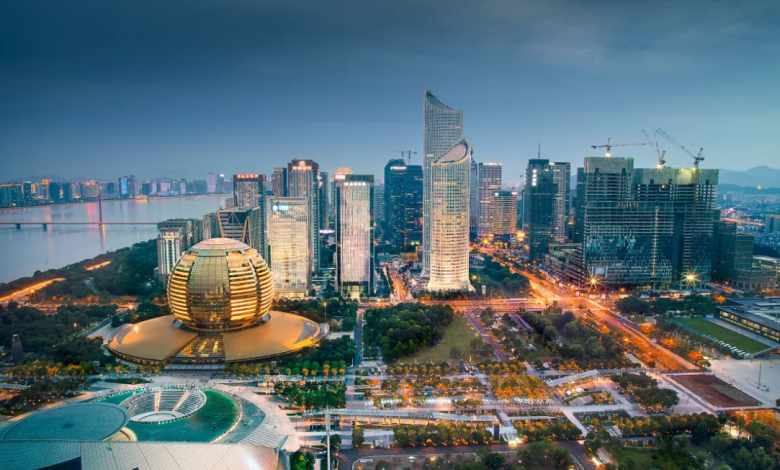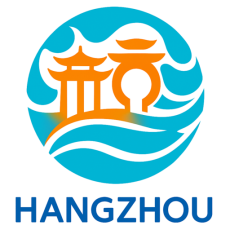
Hangzhou, famed for its misty West Lake and lush tea plantations, faces air quality challenges common to rapidly developing Chinese cities. Understanding the Air Quality Index (AQI) is crucial for residents, travelers, and outdoor enthusiasts. This guide covers:
✔ Real-time AQI monitoring (2024 data)
✔ Seasonal pollution patterns
✔ Health recommendations by AQI level
✔ Government mitigation efforts
✔ Protective measures for sensitive groups
1. Hangzhou’s AQI Basics
What is AQI?
The Air Quality Index measures PM2.5, PM10, ozone (O₃), nitrogen dioxide (NO₂), sulfur dioxide (SO₂), and carbon monoxide (CO). China uses a 0–500 scale:
| AQI Range | Health Implication |
|---|---|
| 0–50 (Excellent) | Ideal for outdoor activities |
| 51–100 (Good) | Mildly polluted; acceptable for most |
| 101–150 (Lightly Polluted) | Sensitive groups affected |
| 151–200 (Moderately Polluted) | Health impacts for all |
| 201–300 (Heavily Polluted) | Avoid outdoor exertion |
| 300+ (Severely Polluted) | Emergency conditions |
Hangzhou’s 2024 AQI Average
- Annual Mean: 78 (“Moderate”)
- Best Month: June (AQI 45) – Summer monsoon rains clear pollutants
- Worst Month: January (AQI 132) – Winter coal heating + stagnant air
2. Pollution Sources & Seasonal Trends
Primary Contributors
- Vehicle emissions (35%) – Hangzhou has 2.5 million cars
- Industrial output (30%) – Textile & tech manufacturing in Xiaoshan
- Construction dust (20%) – Ongoing subway expansions (Lines 10, 18)
- Regional transfer (15%) – Drift from northern industrial provinces
Monthly Variations
| Season | Avg. AQI | Dominant Pollutant |
|---|---|---|
| Spring (Mar–May) | 85 | PM10 (sandstorms) |
| Summer (Jun–Aug) | 58 | O₃ (sunlight-driven) |
| Autumn (Sep–Nov) | 72 | PM2.5 (harvest burning) |
| Winter (Dec–Feb) | 121 | PM2.5 (coal + inversions) |
Data source: Hangzhou Ecological Environment Bureau (2024)
3. Real-Time AQI Monitoring
Reliable Tracking Tools
- IQAir AirVisual – Crowdsourced data with street-level maps
- China MEE App – Official Ministry of Ecology reports
- US Consulate Feed – Independent PM2.5 measurements
Current Hotspots (2024 Observations)
- Binjiang District (AQI 92) – High-tech zone traffic
- Xiasha University Town (AQI 68) – Lower emissions
- West Lake Scenic Area (AQI 55) – Best air in city
4. Health Recommendations by AQI Level
For Sensitive Groups (Children, Elderly, Asthma Sufferers)
- AQI <100: Normal outdoor activity
- AQI 101–150: Reduce prolonged exertion
- AQI 151+: Stay indoors with air purifiers
General Population
- Wear N95 masks when AQI exceeds 150
- Avoid morning exercise during winter pollution peaks
- Hydrate frequently to flush particulate toxins
5. Government Anti-Pollution Measures
Recent Initiatives
- “Blue Sky Defense War” – Closed 1,200 polluting factories (2020–2023)
- Electric Vehicle Subsidies – 30% discounts on BYD/Hyundai EVs
- Green Belt Expansion – 45km² new urban forests by 2025
Results
- PM2.5 reduced by 42% since 2015
- Annual “Excellent Air” days up from 218 (2018) to 287 (2023)
6. Traveler’s Air Quality Survival Guide
Best Times to Visit
- June to August – Lowest AQI + lotus blooms on West Lake
- Mid-September – Post-rain “qinglang” clear skies
Protective Gear
- Xiaomi Smart Air Purifier Mask (¥199) – Filters 99% PM2.5
- Blueair 280i Hotel Purifier – Rentable via Meituan
AQI-Adapted Itineraries
| AQI Range | Recommended Activity |
|---|---|
| 0–50 | Hiking Longjing Tea Hills |
| 51–100 | West Lake boat tours |
| 101–150 | Hangzhou National Silk Museum (indoor) |
| 151+ | Amanfayun Tea Ceremony (purified air) |
7. Future Outlook
With 2025 Asian Games preparations, Hangzhou is accelerating:
- All public buses to be electric by December 2024
- AI traffic management to reduce congestion emissions
- “Green Hotel” certification requiring HEPA filters
Key Takeaways
- Hangzhou’s air is cleanest June–August, riskiest December–January
- Real-time monitoring is essential – pollution can spike unexpectedly
- Sensitive groups should prioritize purifier-equipped hotels
- Government policies are steadily improving air quality
“The West Lake’s beauty is best enjoyed with clean lungs – plan smart.”




